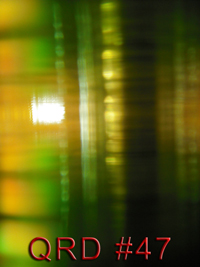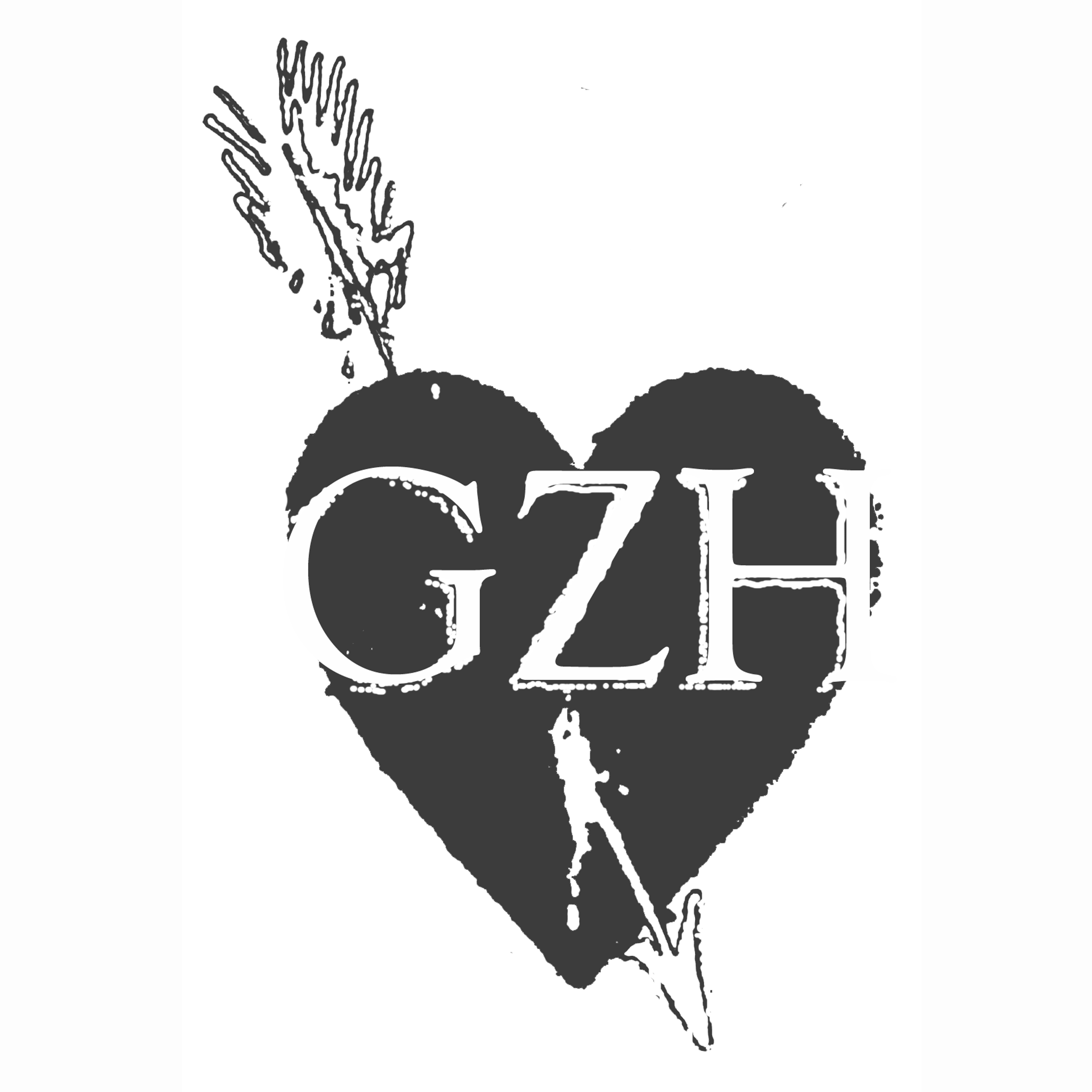



















January 2011

Label: Gizeh Records
City: Leeds, UK
Artists Roster: Sleepingdog, Conquering Animal Sound, Glissando, Fieldhead, Trespassers William, + others
Websites: www.gizehrecords.com
QRD – When & why did you start your label?
Richard – Around 2003, initially to release the very first Glissando recording.
QRD – Where did you get the money to finance your first few releases?
Richard – The first Gizeh releases were CDRs & funded simply from my own pocket.
QRD – How many releases have you put out?
Richard – Around 30 as it stands.
QRD – How many releases would you like to do a year?
Richard – It doesn’t really matter, the factors depend on what the artists are working on & what our finances allow.
QRD – How many hours a week do you work on the label & how many would you like to?
Richard – Generally too many, but it really depends on circumstances, pending releases, & new ideas that need attention.
QRD – What are the fun &/or rewarding parts about running a label?
Richard – These come in various forms; hearing demos that the artists are working on for a forthcoming release, hearing the finished master, getting the final product in hand, working on artwork, helping artists get some deserved attention for their work.
QRD – How have your motivations for having a label changed?
Richard – My motivation is almost always high. There are obvious times of doubt & consideration, but as the label grows I feel increasingly responsible for our artists & to be able to make this whole family we have evolve & progress.
QRD – What do you feel is the biggest waste of your time running the label?
Richard – Time is precious; I try not to waste it.
QRD – What are some labels you admire or feel a kinship to?
Richard – We try to put our own stamp on things, but to name a couple probably the likes of Constellation, Kranky, Bedroom Community.
QRD – What other work experiences prepared you to have a label?
Richard – None.
QRD – What makes you label special & unique?
Richard – Our artists I’d hope.
QRD – How has your physical location effected your label?
Richard – It hasn’t, you can do this from anywhere.
QRD – Do you enjoy music as much now as you used to & how has running a label effected how you listen to/hear music?
Richard – I do - running a label doesn’t change that. However the industry aside from the actually music certainly opens your eyes to some things you’d rather not be a part of.
QRD – What’s your demos policy?
Richard – I’m happy to listen to demos but our releases are very rarely from this source.
QRD – How do you find out about new artists for your label?
Richard – Generally new additions to the label come in the form of various relationships I have built with people/artists over a period of time.
QRD – How do most fans find out about your label?
Richard – I have no idea.
QRD – What release that you’ve done was the most important & special to you personally?
Richard – All our releases are special in different ways, if they weren’t I wouldn’t release them. On a personal note, being able to release the first proper Glissando record (With Our Arms Wide Open We March Towards the Burning Sea) was a nice moment as I thought it would never happen.
QRD – What are some things that make you want to work with a band?
Richard – In the first part the music after that it’s equally important that I like the people involved personally & their ideas & attitudes.
QRD – What are some things that would make you stop working with a band?
Richard – Occasionally you make the wrong call, relationships can falter & people’s outlooks & attitudes change. Most of what we do is based on a trust basic between the artists & myself. The label is a constant work in progress & occasionally certain people don’t have the patience to see it through & believe that there are brighter lights on the horizon.
QRD – How involved are you with a band for acting as a producer as far as hearing demo ideas or selecting tracks to be on a release or mixing & mastering?
Richard – It depends. I have a studio & I record, mix, & produce all the Glissando material so the options are there if the artists want my opinion or my help.
QRD – How involved do you like to be in the artwork design for a release?
Richard – Again it depends, I do some graphic design work myself so if I feel I can add something or make a suggestion I do, however I try to leave this up to the artists & their choice or designer as much as possible. We obviously talk through ideas regarding packaging options etc.
QRD – How long is it from when an artist delivers an album to you until release date & why?
Richard – Usually around 4 months to enable everything to run smoothly with press/distribution/tour dates.
QRD – If a band breaks up between the recording of a release & the release date, how does that effect what you do?
Richard – This can be a real problem, but it’s a basic risk of the game we are in. You can bet the band feels worse than I do about it, but obviously it will hamper sales.
QRD – If you really like a band, but aren’t sure you could sell many copies of their record; what do you do?
Richard – That doesn’t really matter to me - if I love it & I think I can benefit the artist, I’ll release it.
QRD – How is financing of a release split between artists & the label?
Richard – These days the label pays all production costs - it’s not always been this way due to financial restrictions.
QRD – How do you split profits from a release between artists & your label?
Richard – 50/50.
QRD – Do you have written contracts with your bands or handshake deals?
Richard – A combination.
QRD – Do you take a cut of a band’s publishing?
Richard – No.
QRD – How important is it to you to have touring acts on your roster & what do you do to encourage it?
Richard – It’s very important, though not essential. It really helps sales of course.
QRD – Do you handle promotions in house or hire out & why?
Richard – In house - I feel I can do a good enough job myself & that enables money we would spend on hiring press agents to be put into the releases.
QRD – How do you maintain contact with your fanbase?
Richard – We have a fanbase? Keeping the website up to date, doing a (ir)regular mailout & unfortunately the use of Facebook from time to time.
QRD – Do you have intern & street team programs & if so, how do they operate?
Richard – No.
QRD – How big of a staff do you have & how big of one do you need?
Richard – It’s pretty much just me with the help of some beautiful people occasionally.
QRD – How do you decide how big the initial pressing of a release should be?
Richard – We generally start with 1000 & go from there.
QRD – What percentage of a pressing do you use for promotions?
Richard – We usually do a separate run of promos for each release, though not always.
QRD – Do you sell merchandise other than the music (t-shirts, etc.)?
Richard – Yes.
QRD – Do you sell music that is not on your label?
Richard – We used to, but not any more.
QRD – How has running a label effected your own artistic career?
Richard – It helps & hinders in equal
measures.
QRD – Ideally, would you release your own material?
Richard – I do.
QRD – What do you do to try to build a sense of community within your roster?
Richard – That’s a big part of the label ethics. We all try & look after one another however we can.
QRD – What’s your most common conversation with bands as far as balancing artistic integrity & financial viability?
Richard – That doesn’t happen.
QRD – Do you worry about search engine optimization & website traffic?
Richard – No.
QRD – Do you think the album format is dead?
Richard – No.
QRD – Do you think the return of vinyl & cassettes is a fad?
Richard – Hopefully not, though possibly.
QRD – Is it important to have physical releases over digital ones or does it not matter?
Richard – I believe physical is important & I can’t see my opinion changing any time soon. We have started releasing digital only albums, generally live material or old limited releases that won’t be re-pressed.
QRD – What do you think of ultra-limited runs of releases (less than 100 discs)?
Richard – I like this idea - it’s something we do from time to time.
QRD – How much content do you feel should be available free to fans?
Richard – We generally let a couple of tracks from each release go for free or to stream in the hope that it will encourage interest in buying the actual record.
QRD – What do you do about people distributing your music without financial compensation (piracy & file trading)?
Richard – I don’t do anything. It’s a very unfortunate part of the industry, but you can’t let it keep you awake at night. Maybe I’ll invent a curse.
QRD – What would you suggest to someone starting a label today?
Richard – To think long & hard about it… it’s not an easy job.
QRD – Why do you think labels are still important to artists?
Richard – Hopefully it’s a sense of community & we strive to create that. It can help from a point of view of having an established name to be associated with - it really depends on what you want to get out of making music.
QRD – Music has had different hotspots on the internet over the years (newsgroups, MP3.com, MySpace, LastFM), but with MySpace’s decline, what do you see as the place where “normal” people go to find out about & get excited by new music?
Richard – The demise of MySpace is a glorious thing. It’s about time. So long as labels/artists have music available for instant listening via their own websites I don’t really see what the difference is.
QRD – In 20 years what do you think/hope your label will be known/remembered for?
Richard – Hopefully for releasing some
beautiful records & keeping some sort of quiet dignity in this instant
world.







